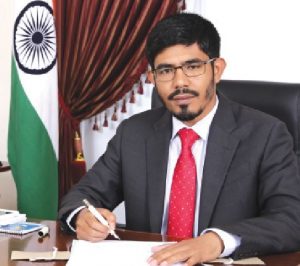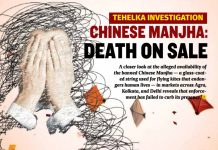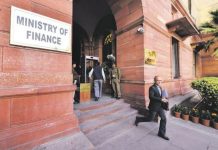 The issue of contribution to any society that is educationally least developing community, particularly the Pangal community of Manipur, by an individual at the personal level is not an easy task. However, as a civil servant, it is going be a bit easier task. Keeping this in mind, it is believed that education is one of the instrumental tools of substantial development of any society, individual and community. It functions at the higher priority basis from the lower platform among the members of any community.
The issue of contribution to any society that is educationally least developing community, particularly the Pangal community of Manipur, by an individual at the personal level is not an easy task. However, as a civil servant, it is going be a bit easier task. Keeping this in mind, it is believed that education is one of the instrumental tools of substantial development of any society, individual and community. It functions at the higher priority basis from the lower platform among the members of any community.
The predilection of the educational status of this community in terms of competitive exam, primarily the Civil Service Exam, is a process of two or three decades. Their number is relatively low in higher education. Their perception is more focused on the basics of Islamic education at the Maktab Khana and Madrasas from the early period of their settlement to the early period of twentieth century rather than the higher education.
It is noted that the first graduate among the Pangals was Muhammad Wali Ullah in 1928-29 during the colonial period. Still, some sections of Pangal community settling in different remote villages considered wholeheartedly the learning of English education as negligence and impure which made them educationally backward and lagging behind the other religious communities of Manipur, particularly Meiteis and Tribes. It is one of the primary reasons for their lack of interest in higher education.
Some of the pertinent queries are given as: Why are the Pangals so backward in higher education? Does the state follow the ‘inclusive’ and ‘exclusive’ policies towards the Pangal community? Is it due to the lack of political leaders or lack of interest among themselves? Such questions need to be paid attention and pondered seriously to tackle the bottlenecks faced by the Muslims in Manipur.
Scholars tended to view the year 2002-03, a major striking year in the historical juncture and scenario of Muslim community of Manipur for understanding and explaining their educational status through competitive exams like Civil Service Exam, State PCS, and other lower grade exams.
Pre-eminent civil servant among the Pangals of Manipur, Noor Rahman Sheikh (IFS) from Kshetri Top Khongnang Makhong, Imphal East, who is now posted at Jeddah, Saudi Arabia as Consul General, cracked this highly rigorous and competitive exam in the first attempt in 2002-3. It will not be an exaggeration to describe him as the first torch-bearer and a pioneer in this field after he just graduated from Hindu College, Delhi University, Delhi in Political Science (Hons).
Starting his career as a young dynamic NDA cadet which he had to leave later on medical ground, he went on to become one of the bright civil servants of the country. He became the first person to paint a new picturesque by creating and opening a bright light in the educationally caliginosity status of Manipuri Muslim society in the context of Civil Service Exam.
Achieving 187th rank among all over India, he was the first and foremost IFS officer among the OBC and General candidates (Meiteis, Pangals, etc.) from Manipur. Prior to him, there was no direct selection in civil services from this community though there were some promoted state civil servants namely Halim Choudhury from Babupara, IG Rahman from Keirang, Abdul Sattar from Hatta, AR Khan from Kshetri Bengoon, etc.
Despite being born from a middle family background, he has earned his place in the annals of Manipuri Pangals as a representative of social consciousness, aspirations, determination, patience, value judgment, sincerity, dynamic personality, etc., that led him to secure it easily. His contributions to the Manipuri Muslim society are immense. Moreover, such wave of awareness-cum-professional-ship increased immeasurably day by day and year by year after 2002-3.
He brought some substantial changes in the educational status of this community through the agency of competitive exam which helped him to change their vision towards education. These efforts were highly commendable and were recognized. The credit goes to him for this social structural change from ‘impossibility’ to ‘possibility’ at the community and mass level. It is evident from the fact that the motility of competitive educational parameter with special reference to the Civil Service Exam (CSE), the topmost exam conducted by UPSC, among the Muslim community of Manipur and other competitive exams is functionally and practically said to have felt towards them.
Since the early decade of the 21st century, the Pangal Community has seen a paradigm shift in empowerment through higher education. The society has seen a phenomenon transformation since the 2000s. In this socio-economic churning through education, some of the Pangal youths who have been leading a change are being spearheaded by Noor Rahman Sheikh.
He is the great grandson of freedom fighter of Manipur who participated in the Second Nupi Lan (December 1939) namely Smt. Shajabam Kunjehari Bibi, wife of Sh. Nur Ali. They had agitated against the British forceful occupation of export of rice into other states and other factors. They involved in wrecking the Kasturi Godown and some others were put into jail. Equally important, though less known, is his help and other notable works that he has done for the poor families in the state in terms of financial and monetary help like resettling of the
affected people after eviction at the Kshetri Bengoon Awa Ching by giving land in the nearby area. He also supports the education of the children of some of these victims by sponsoring their fees, etc. It inspired a whole generation of younger scholars.
He has influenced many other civil servants in the state like Altab Hussain from Khetri Bengoon, Imphal East, who cleared it and got the Indian Revenue Service (IRS) by securing 313th rank all over India. He spearheaded a significant change in the Manipuri Muslim society through a wave of competition in 2007 when he cracked the CSE. This wave had outstandingly made our society a ‘marker’ change as compared to other religious communities.
Continuing in the same pattern and same gap of year, in 2012, Sabir Yumkhaibam from Oinam Swambung, Imphal West, got IFS by securing 244th rank all over India in this coveted competitive exam and some others also cleared it. Apart from influencing the civil aspirants, he also inspired many other young scholars in the field of research, teaching, etc. Some candidates have also qualified the state PCS exam so far.
The numbers of State PCS holders, Research Scholars, Assistant Professors, Doctors, Engineers, etc. are easily countable at finger points. As a matter of fact, these aspirants influenced the Manipuri Muslim youths inordinately regardless of CSE aspirants, Research Scholars, Academicians, Engineers, Doctors, Islamic Scholars, etc. and still became an icon of Manipuri Muslim society for future generations.
Why it was so is due to the fact that there are number poor families among the Pangals and no implementation of reservation policy for the OBC Pangals has been done. Moreover, there was lack of awareness-cum-professional ship programmes and courses, loopholes among the Manipuri Muslim political leaders, social activists and resource persons like research scholars, professors, etc., and lack of government incentives and schemes in education. The year 2002-3 marked a major venture significantly in creating an aura of competition among this community.
And such contributing factor should be continued, acknowledged and promoted as much as possible to make it educationally more strengthened for our state in general and our community in particular. How much influence and implication is there is undoubtedly and clearly indicated from the above mentioned persons especially Noor Rahman Sheikh in such a way that the tradition of taking Political Science as the optional subject by many students who are doing graduation in different colleges of Delhi University, Jamia Millia Islamia, Manipur University, and master in Jawaharlal Nehru University, Delhi University, Jamia Millia Islamia, Manipur University, etc., from this community is towering immensely. It is being largely maintained and continued by many persons till today.
Moreover, the wave of yearning felt among the student’s parents and guardians to send their children in Delhi University, Jamia Millia Islamia and Jawaharlal Nehru University rather than Aligarh Muslim University is a direct immaculate example of them. This slowly shifting of institution along with genuine concern through motivation and effective suggestion is largely loomed and shaped concretely by them. This wave of competition, educationally being felt among the Muslim community of Manipur, created a sizeable dazzling overtone indirectly to the state PCS exam holders also and even the academicians.
The contribution of such legacy maker, visionary and innovator who brought light and upliftment to the dark and gloomy outlook of the Muslim community of Manipur towards education should be, at any cost, recognizable and acknowledged. This wave of educational competition is progressing ceaselessly in our Manipuri Muslim society even today.
Md Chingiz Khan is a Ph.D research scholar at Jawaharlal Nehru University, New Delhi. Views expressed are his own
letters@tehelka.com












